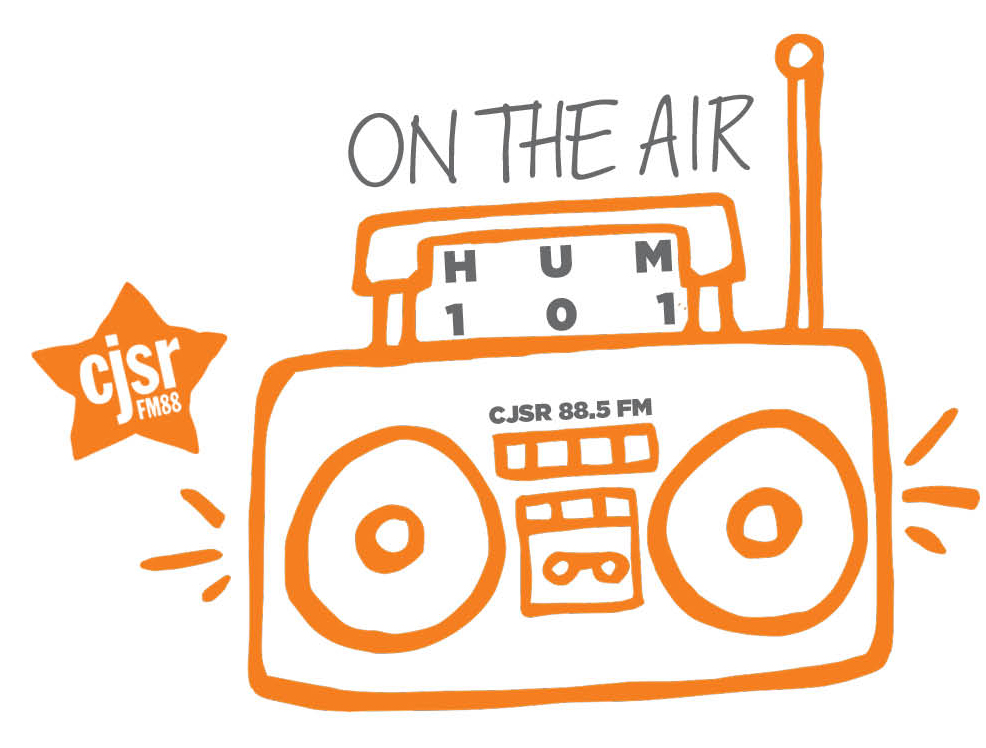Active, intentional learning over the airwaves
Donna McKinnon - 2 November 2020

When the University of Alberta shuttered its doors to in-class learning in March due to the COVID-19 pandemic, professors and students pivoted within a matter of days to online learning. While the technological challenges were significant, for most, it was not insurmountable.
Accessibility to the internet and the type of digital literacy required to simulate a home-based, classroom setting is not a given for everyone, however, particularly for those who participate in Humanities 101. These students face financial, systemic, and institutional barriers to post-secondary education.
For more than a dozen years, Humanities 101 (informally, HUM) has been delivering free, non-credit university-level courses to adult learners on and off campus. The Community Service-Learning supported program places lived experiences on the same plane as traditional coursework instruction. It is reciprocal, inclusive, and for many of its students, transformational.
“We all come with things to learn and things to share, and we’ve worked really hard to build relationships within and around Edmonton,” says HUM coordinator Lisa Prins, a 2019 U of A Community Connections Awardee. “We have a responsibility to folks to show up and to continue to show up in ways that we have in the past, and to do it in a way that is the most accessible.”
Radio, says Prins, was the most obvious choice, so she reached out to Chris Chang-Yen Phillips, podcast coordinator and grant writer at campus-based radio station CJSR, who had been supportive of the program in the past. Starting in early summer, Prins, Chang-Yen Phillips and CJSR news coordinator Meagan Miller brainstormed ideas, landing on pre-recorded shows to be played on CJSR throughout the fall term. Prins describes it as active, intentional learning over the airwaves.
“As a station, we're pretty thrilled to be doing this partnership,” says Chang-Yen Phillips. “A huge part of what we do at CJSR is just trying to empower people who don't usually get the microphone. Our mandate is to be a home for programming that challenges the status quo, and Humanities 101 meets that mandate in a pretty radical way.”
In September, HUM put out a call to the UAlberta community for radios, which were then distributed to individual homes, community organizations, and places like Camp Pekiwewin and the Edmonton Institution for Women. The first broadcast on October 16, with Elder Kokom Constance, Nykkie Lugosi-Schimpf (Native Studies), and poet Matthew Weigel was by all accounts a success.
There is precedent for this type of collaboration at the University of Alberta. On November 21, 1927, Department of Extension staff member H.P. Brown, along with soon-to-be registrar A.E. Ottewell, founded CKUA radio, featuring lectures by university professors interspersed with symphony performances.
The training involved to use audio equipment and editing software was a ‘steep learning curve’ admits Prins. To record Elder Bonny Spencer for an upcoming show, Chang-Yen Phillips taught Prins to use a field recorder from the (socially distanced) steps of his porch, as her children played nearby. While most of the shows will be recorded Zoom interviews, Prins felt it was important to record Spencer on her land, and to hear her story from the context of where she was saying it.
“We’re just sitting on the porch, all of us in masks, figuring out this field reporter tool while we're trying to be chill about this very weird situation we're in,” says Chang-Yen Phillips. “It’s a good year to be human and flexible.”
Storytelling is the theme for this term, in part because it lends itself so well to radio, but also because it bridges the previous term. Curriculum is developed, says Prins, in response to questions left unanswered, or brought forward in between semesters.
“A lot of people kept going back to the narrative of land and all the different stories around land,” she says. “So let's dig deeper into storytelling as a mode of communication—how stories come to be, how they are told, and the power stories hold to shape our lives and views. It's about telling stories and making room for other stories.”
Upcoming guests include storytellers Tolowa Mollel (‘79 MA, Drama), Chunga Otiende and U of A instructor Tracy Bear (Women’s and Gender Studies/Native Studies).
Prins says they are trying to stay three weeks ahead of the game in terms of recorded interviews, but that’s only the start. There is the editing, booking and scheduling interviews, in addition to all the other HUM initiatives. One other hurdle she faced was copyright, which is different for on-air programming than what is typically shared in a classroom.
“Lisa undersells the colossal amount of work it takes to make a pre-recorded show,” says Chang-Yen Phillips. “It can take months to get all the audio and the people gathered together to edit an hour of content to play on air, and Lisa and her team are doing that every week.”
“It felt insurmountable at times,” says Prins. “There have been so many people like grad student Kendra Cowley and HUM intern MorningStar Willier who have worked hard to make it happen. And CJSR has been incredibly supportive and creative and patient and generous with us as we are trying to sort this out. I think it's a really great story about what happens if you just try something different. Let's just go do this thing and see what happens.”
Check out the HUM 101 On Air blog here.
Listen to HUM 101 On Air on Spotify.
Humanities 101 on Facebook.
Support the CJSR Fundrive here.